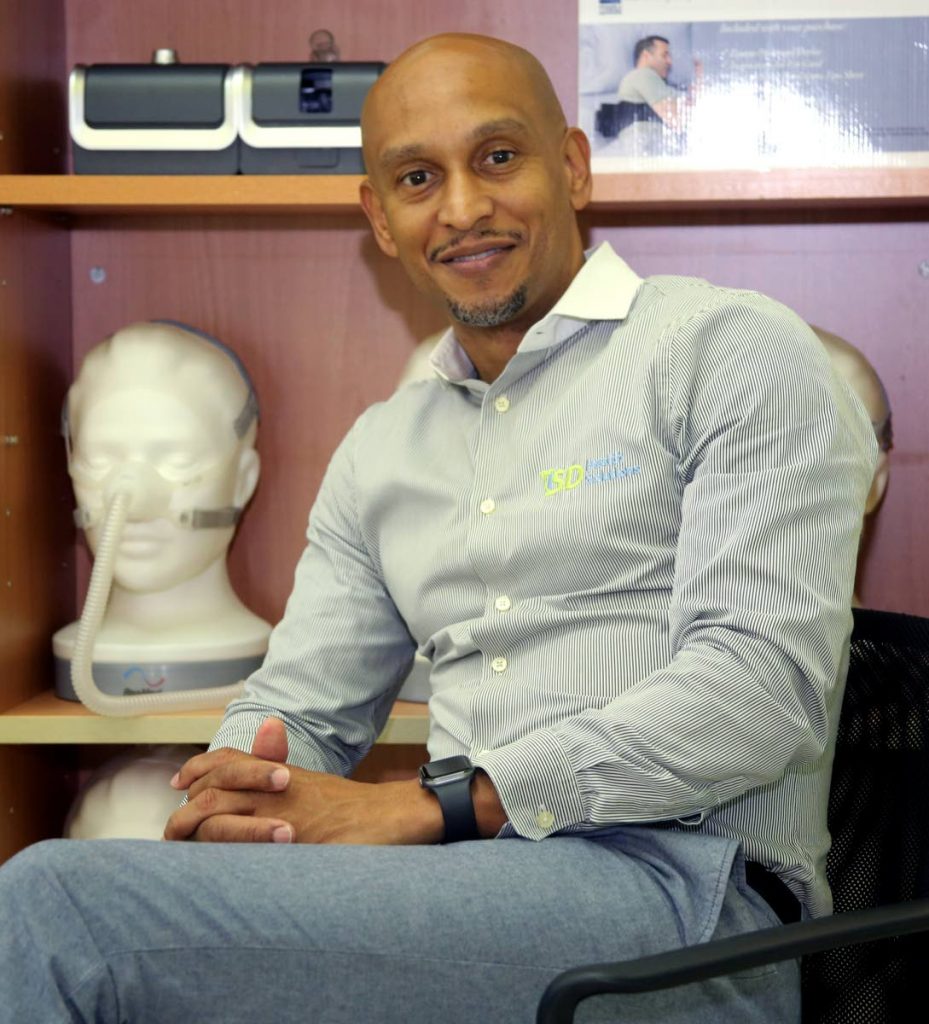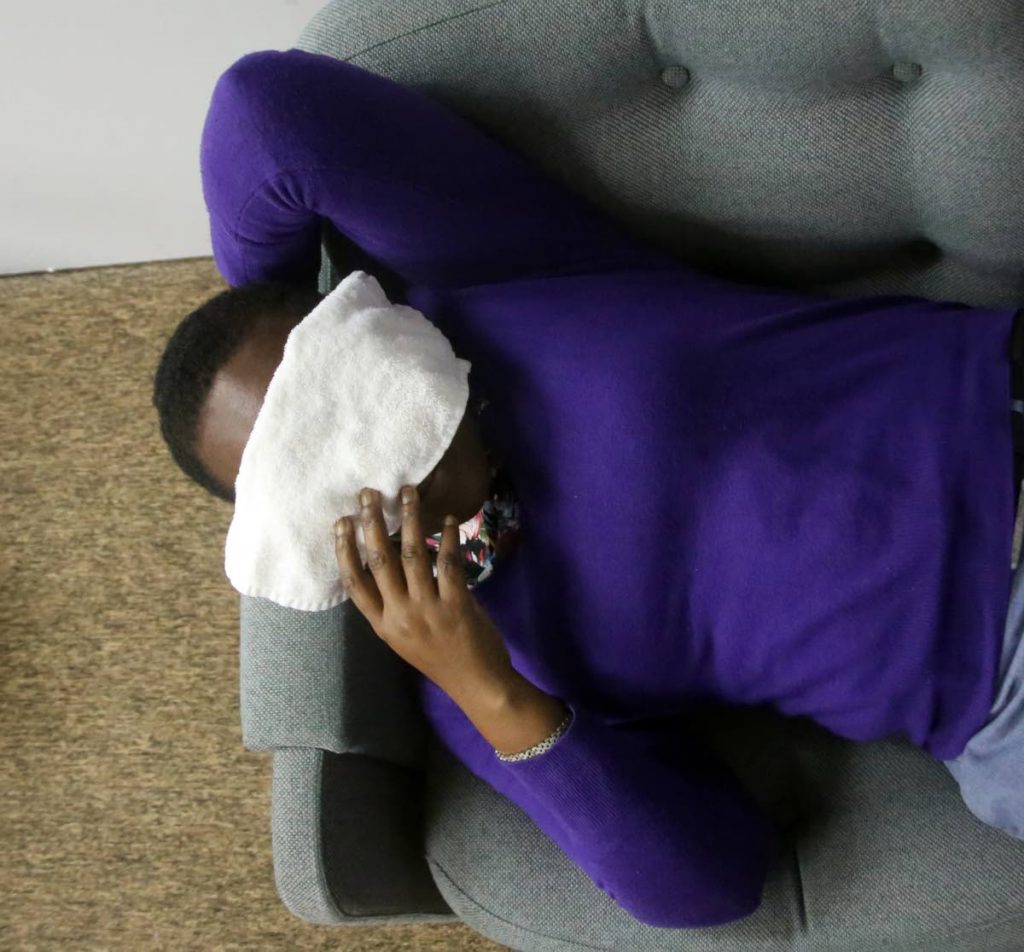Quality of sleep is critical

Today's article concludes a two-part series on Insomnia. This first was published on November 19.
Gregory Arneaud, the clinical director and respiratory therapist of ISD Health Solutions in Port of Spain, knows how injurious lack of sleep can be.
He lost his grandmother because of sleep apnoea. Although he did not know the cause at the time, his training and experience as a US certified respiratory therapist led him to understand that the sleep disorder contributed to her death.
When he returned to TT in 2006/07 he realised there was a “great need” for sleep management and expertise here. This was how ISD Health Solutions was born. The sleep clinic diagnoses, treats and educates people about the dangers of sleep disorders and its correlation to non-communicable diseases (NCDs) like heart attacks, strokes and diabetes.
He said while most people were concerned over the quantity of sleep, it was, rather, the quality of sleep that mattered.
The largest pool of sleep disorders is insomnia, Arneaud said, and many people who have obstructive sleep apnoea are also insomniacs.
Today’s busy lifestyle and the challenges of transport lead to many people being short of sleep.
“They are waking up an hour or two hours earlier than their actual scheduled time because of traffic. By the time they get to bed, it is in the hours of 10 pm, 11 pm and 12 am, and waking up at 4 am is or 5 am again.”
He said research done by the clinic over the last seven or eight years showed people in TT are only sleeping for about five to five and a half hours a night.
There was a huge issue of sleep deprivation in TT which leads to traffic accidents – in fact, he said this was the main reason for accidents. He added there are different types of insomnia in which people have difficulty falling asleep and others have difficulty staying asleep.

“So based on what your concerns, there are different medications that have different time releases to help you keep asleep for the time frame that you’d like to sleep.”
Arneaud said people suffering from sleep disorders should have a consultation to review what is going on.
“You have to look at sleep as the only way of maintaining your health,” he said.
He said based on TT’s population and its disease rate there is more than a potential risk of 300,000 people suffering from a sleep disorder.
But he felt it was greater than that, because you don't have to have a NCD to have a sleep disorder but there is a correlation between NCDs and sleep disorders.
“Insomnia and sleep apnoea is greater than 30 per cent in hypertensive patients; it is greater than 50 per cent if you’re diabetic; and greater than 70 per cent if you have cardiovascular disease.
"So we know already through our research and data that, based on our population, we have more than 300,000.”
He said people with sleep disorders put their companies and organisations at risk because of accidents and bad decisions due to lack of sleep.
Arneaud and his company hope to offer, through a partnership with Itamar Medical (a US company), a US Food and Drug Administration-approved diagnostic testing device that can provide one’s sleep information within 24-48 hours.
Sidebar/boxes
How to create proper sleep hygiene
Provided by Dr Varma Deyalsingh
• Limit daytime naps to 30-40 minutes. Restrict to early afternoon
• Avoid stimulants such as caffeine and nicotine close to bedtime. Ideally consume before 4 pm. While alcohol is well known to help you fall asleep faster, too much close to bedtime can disrupt sleep in the second half of the night as the body begins to process the alcohol.
• Exercise to promote good-quality sleep but avoid strenuous workouts close to bedtime.
• Avoid food that can be disruptive right before sleep. Heavy or rich foods, fatty or fried meals, spicy dishes, citrus fruits, and carbonated drinks can trigger indigestion for some people.
• Ensure adequate exposure to natural light. This is particularly important for individuals who may not venture outside frequently. Exposure to sunlight during the day, as well as darkness at night, helps to maintain a healthy sleep-wake cycle.
• Establish a regular relaxing bedtime routine. A regular nightly routine helps the body recognise it is bedtime. This could include taking a warm shower, reading, or light stretches.
• Avoid stressful or argumentative conversations close to bedtime
• Set aside time during the day to reflect on problems or stresses so you are less preoccupied with them when you are ready to sleep
• Go to bed only when sleepy. If you're still awake after ten-20 minutes, get up and go to another room without turning on the lights, and only return when sleepy
• Establish set sleep and wake times (with no more than an hour variation) even on weekends and holidays
• Establish an hour of wind-down time, when you distract yourself from the stresses of the day (listening to calming music, reading a book, warm shower, warm milk)
• Make sure the sleep environment is comfortable. Mattress and pillows should be comfortable. The bedroom should be cool for optimal sleep. Bright light from lamps, cellphones and TV screens can make it difficult to fall asleep, so turn those off or adjust them when possible.
WHEN TO SEE A DOCTOR
If your insomnia has become a pattern and it interferes with your functioning in your daily life (job, school, taking care of your children etc) it is time to seek help. Many people have brief periods of difficulty sleeping (for example, a few days after starting a new job), but if insomnia lasts longer or has become a regular occurrence, you should visit a physician.
Conditions that may lead to insomnia:
Panic attacks
Social phobia
Anxiety
Depression
Bipolar disorder
Hyperthyroidism
Diabetes
Peptic ulcer disease
Asthma
Cystic fibrosis
Environmental factors, eg noise pollution and extreme temperatures.
Sleep-related conditions and lifestyle choices which result in insomnia:
Parasomnias (a category of sleep disorders that involve abnormal movements, behaviours, emotions, perceptions, and dreams that occur while falling asleep, sleeping, between sleep stages, or during arousal from sleep)
Restless leg syndrome
Sleep apnoea; frequent travel
Tobacco or nicotine
Eating large meals close to bedtime
Daytime napping.


Comments
"Quality of sleep is critical"